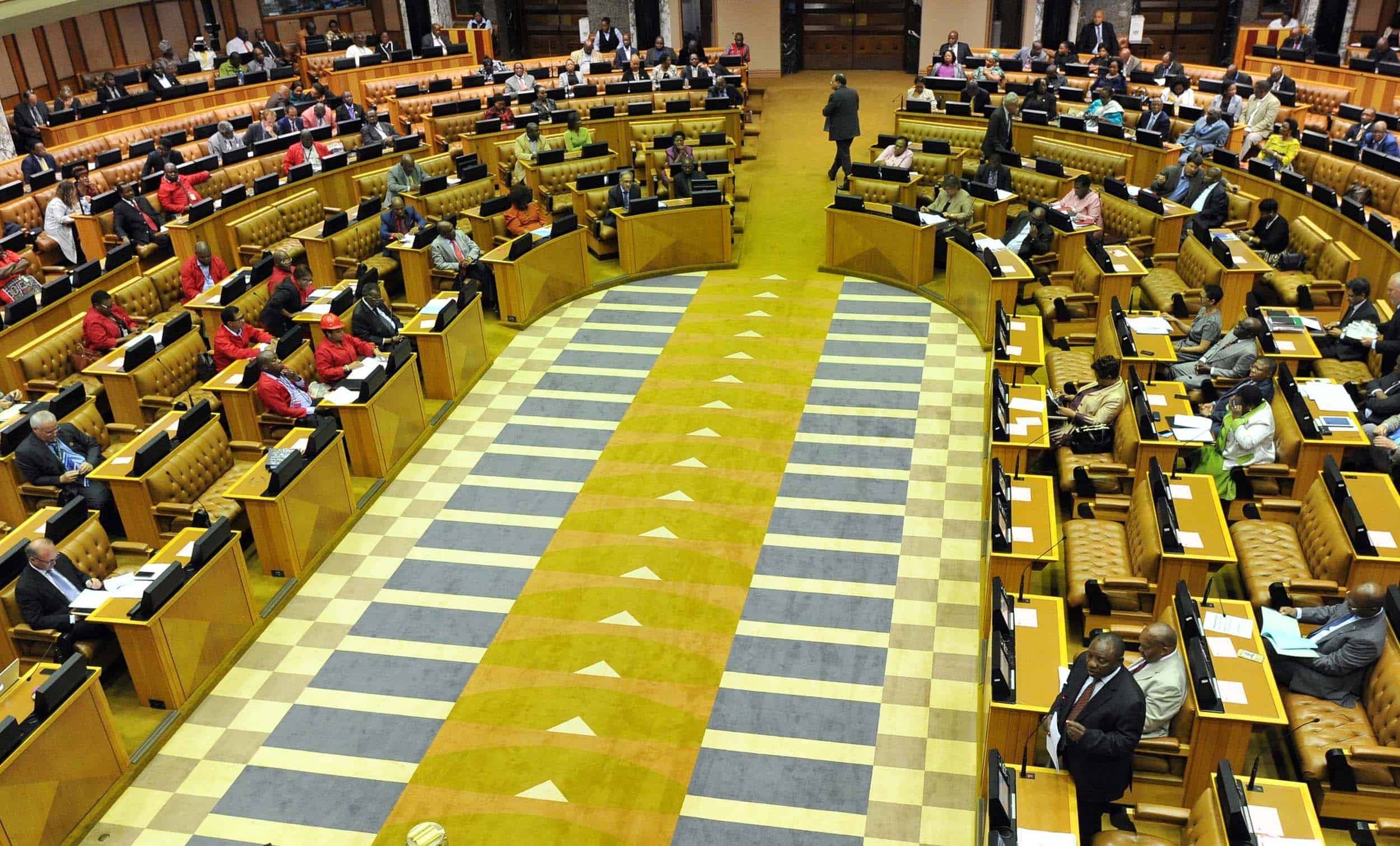In South Africa, intense political investigations within the parliament highlight ongoing scrutiny of governmental and military figures, revealing critical issues of corruption, mismanagement, and accountability in key state institutions. These parliamentary probes encompass high-profile investigations into the Department of Defence, military veterans affairs, and major state-owned enterprises, demonstrating active oversight mechanisms in response to persistent governance challenges.
In early 2025, the South African Parliament’s Standing Committee on Public Accounts (SCOPA) received briefings from the Special Investigating Unit (SIU) regarding investigations into the Department of Defence (DOD), the Department of Military Veterans (DMV), and the state arms manufacturer Denel.
These investigations were triggered by proclamations in 2019 and 2020 concerning alleged unlawful or improper conduct surrounding procurement processes, including Microsoft software license deals made between 2016 and 2019. The SIU sought to uncover potential irregularities involving officials, employees, and service providers linked to these contracts, underscoring concerns over oversight failures and corruption risks in crucial defense sectors.
Further exposing corruption within the defense establishment is the scandal surrounding 1 Military Hospital, a facility bedeviled by a long-standing saga of financial mismanagement and incomplete infrastructure upgrades despite nearly R1 billion invested over 25 years. The hospital’s emergency theatres, radiology units, and pharmacy remain non-functional, exemplifying systemic neglect. Parliamentary pressure, notably from the Democratic Alliance (DA), resulted in an urgent parliamentary briefing with the SIU and the Directorate for Priority Crime Investigation (DPCI). Forensic reports have implicated senior defense officials, yet despite investigations, no arrests or disciplinary actions have occurred, deepening public frustration and raising questions about accountability in the Department of Defence.
The political investigations also intersect with broader security concerns. In mid-2025, President Cyril Ramaphosa suspended Police Minister Senzo Mchunu amidst allegations of his links to criminal gangs and interference with investigations into politically motivated killings. An independent commission was established to scrutinize these claims, focusing on the infiltration of criminal networks into police and intelligence services. This probe marks a critical effort to restore the rule of law and combat factional violence that has historically destabilized parts of South Africa.
The ongoing inquiries reveal a complex landscape where political and military accountability is challenged by entrenched interests, factional infighting, and institutional weaknesses. The African National Congress (ANC), South Africa’s ruling party, has faced internal tensions affecting parliamentary dynamics, with loyalty often outweighing independent oversight. This has historically limited parliament’s role as an effective watchdog. However, these current investigations show increased assertiveness by opposition parties and parliamentary committees to expose wrongdoing and demand transparency.
South Africa’s political investigations within parliament serve as both a test and a reaffirmation of democratic principles, striving to ensure that state resources are protected from corruption and that those in power are held to account. The scrutiny of military and government officials reflects citizens’ demands for justice and improved governance. Nevertheless, challenges remain, as protracted investigations without tangible consequences risk breeding cynicism.
In conclusion,
South Africa’s parliamentary investigations into defense and governmental corruption highlight the nation’s ongoing efforts to confront systemic abuses within its political and military institutions. These probes are critical for re-establishing public trust and reinforcing constitutional accountability mechanisms, essential to the stability and integrity of South Africa’s democracy.
[PDF] For Reference:

